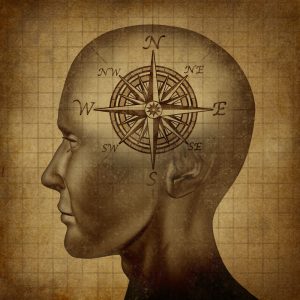questioning the question
Sometimes we find ourselves filled with an uneasy feeling, a vague unsettling sensation that permeates the very core of our being, telling us that something is amiss. And yet the cause of our disquietude is difficult to discern, as if diffused and obscured by a fog laid low upon the ground.

Morality
This malaise now permeates every aspect of our lives and it most assuredly threatens to overwhelm. While there are innumerable factors and countless explanations for it, there appear to be few proffered solutions, outside of name-calling and assigning blame, which might pull us from the doldrums in which we have so clearly sunk.
What bothers is the unmistakable absence of any attempt to determine a root cause for our continued and precipitous fall from grace. Here I would dare suggest is where we must begin before any reasoned solution might be proposed, no less implemented.
In a recent Faith Forum column in the local newspaper the question “Is religion needed for a moral life?” was posed to various religious leaders in the community. The answers, one and all, were instructive in how one ought not respond to such a question. Before responding to any question one must first consider whether the question is in fact a reasonable one. I would posit that the question was not only unreasonable but serves as an example of a bad argument relying on a false premise. In addition, the question is a near perfect example of what we find so unsettling these days.
So what is so objectionable about the question? Nothing, as long as you ascribe to the notion that the basis for any moral code rests under the purview of any or all religions (which are human constructed institutions) or under the whim of one or more human beings. And when understood from that perspective the question becomes more transparent, begging the question: Who (what human being) decides? Is it up to each individual or religion to define a moral code? I would certainly hope not.
So let’s look at the question with a critical eye. What false premise does the question assume as true? The question relies on the premise that morality is a human convention, subject to the whims and vagaries of those who say they have the right and the power to determine what is right and what is wrong. It assumes an ala carte moral code, where what is morally right or morally wrong is decided by each individual, group, society, or potentate. If this is truly the case then when your moral code differs from mine who is the final arbiter. Who decides? What is absent from the equation is God and his divine role in defining a moral code.
As for the bad argument, the problem can be explained by simple substitution. Substitute anything you want for “religion”: “Is sunlight needed for a moral life?”, “Is apple pie needed for a moral life?”, “Is a house needed for a moral life?” No matter what you exchange for “religion” any answer will be total nonsense unless and until you place God squarely in the question. Only a moral code defined by God can be immutable and unchangeable, certainly not thru the actions or decrees of any institution, group, or individual.
The question as constructed still contains a bad argument even when you insert God into it. I’ll explain why next week.
